The Story Behind Why Rob Lowe Left The West Wing
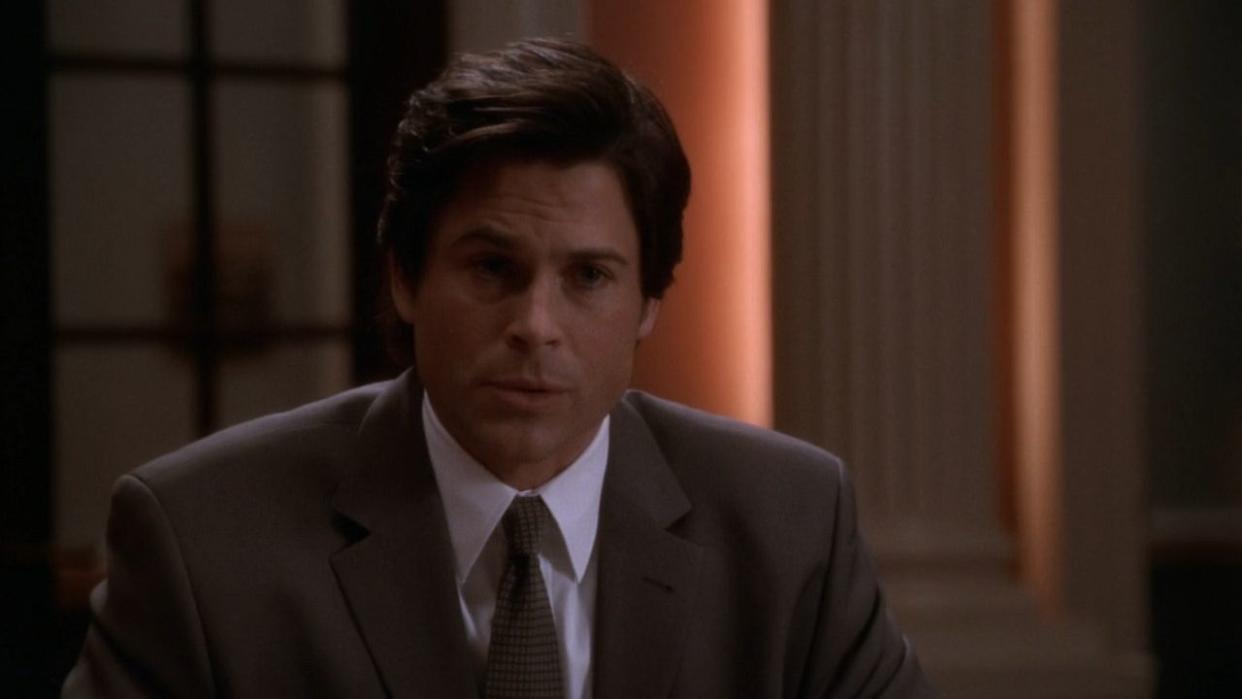
From 1999 to 2006, The West Wing was one of the most popular shows on TV. It won the Emmy for Outstanding Drama Series in each of its first four seasons, and it made stars of its ensemble cast. The vast majority of the cast appeared on the show for all of its seven seasons, and considering how popular it was, that’s not really a surprise. But the series did lose one of its key cast members when Rob Lowe left near the end of the fourth season.
Rob Lowe was one of the biggest names in The West Wing cast when the show began, so his decision to leave the show was considered a significant blow at the time. So why would one of the biggest stars of the biggest show on TV step away at the height of The West Wing’s popularity?
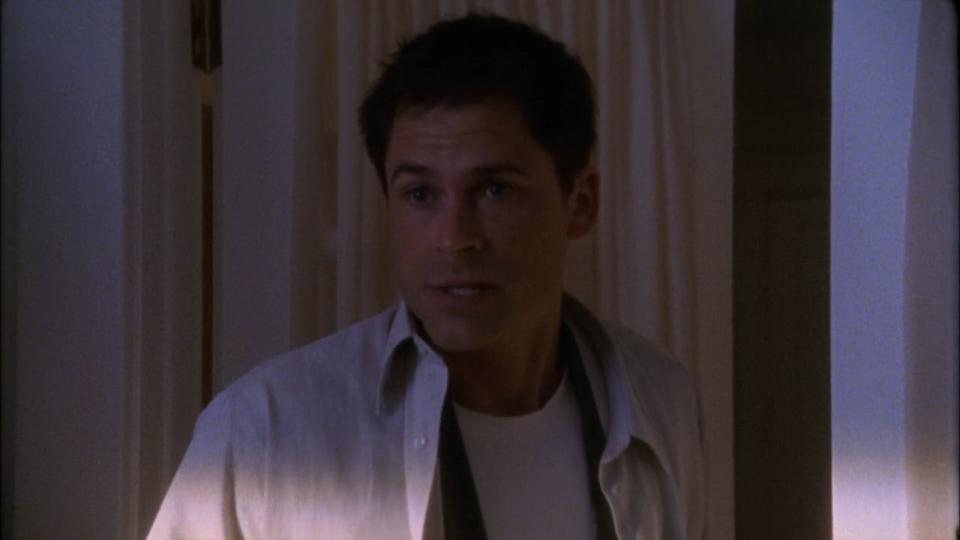
Rob Lowe On The West Wing
The West Wing was the creation of writer Aaron Sorkin and born from unused ideas in an early draft of his script for the romantic drama The American President. The President’s senior staff play significant roles in the film, but are never the focus. In the new series, the ensemble of characters that support the President of the United States would be the stars. Originally the President himself wasn’t even meant to be a regular character, appearing only occasionally.
The West Wing cast was made up primarily of strong character actors. Bradley Whitford, Allison Janney and Richard Schiff were the sorts of actors you’d recognize from other things you’d seen before, but you might not remember their names. But the show had two significant stars: Martin Sheen playing President Josiah Bartlet and Rob Lowe playing Deputy Communications Director Sam Seaborn.
Sam Seaborn is a key character throughout his time on The West Wing. Rob Lowe's character is literally the first member of the cast you see in the pilot. In the first season, his personal life is the one that gets the most development, as he develops an intimate friendship with one woman and a romance with the daughter of the Chief of Staff.
Some reports claimed that early on, the plan was to make Lowe’s character the star of the show, but when the decision was made to make the President a more prominent character, the concept shifted to more of an ensemble. It seems this may have played a big role with Lowe's decision to leave.
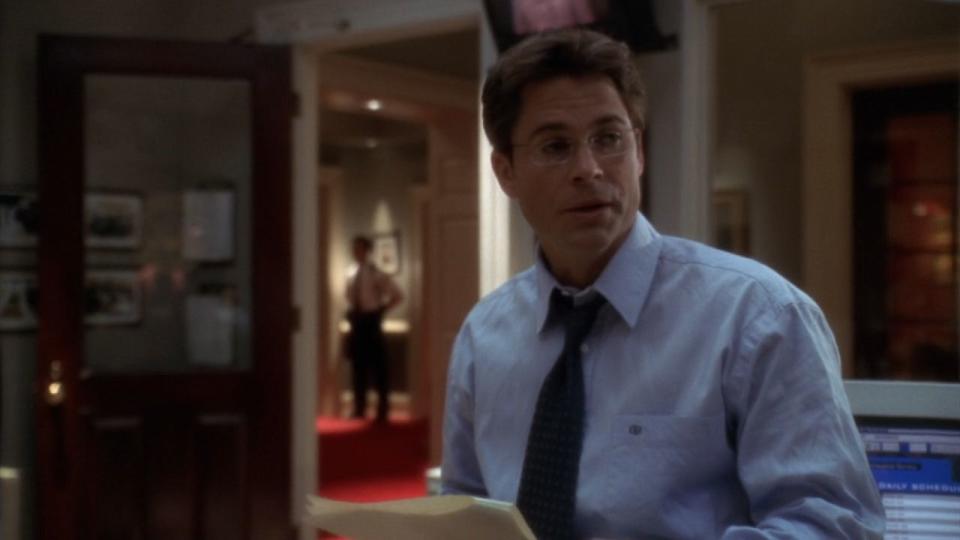
What Reports At The Time Said About Rob Lowe’s Decision To Leave
Early in Season 4, in the fall of 2002, it was announced that Rob Lowe would be leaving The West Wing after 16 of the show’s 22 episodes (episode 17 would actually be his last). In a statement, Lowe claimed there was “no longer a place” for his character on the show. However, an EW report from the time said that the issue at hand was ultimately money.
Rob Lowe reportedly signed onto The West Wing at $70,000 per episode. By Season 3, Lowe had received no raise, but most of the rest of the core cast, who had been making less than Lowe initially, about $30,000 per episode, had seen their salaries bumped up to be equal to what Lowe was making.
Lowe asked for a raise of his own at that point and was asked to hold off for a year, but a year later, he reportedly couldn’t get a meeting to even discuss such a raise. Due to the large cast and the cost of their salaries (Martin Sheen was reportedly making somewhere in the neighborhood of $250,000 per episode), The West Wing was an expensive show to make, and the producers apparently felt a raise for Lowe simply wasn't possible. Based on this report, Lowe decided that with no raise coming his way, he wasn't going to stay.
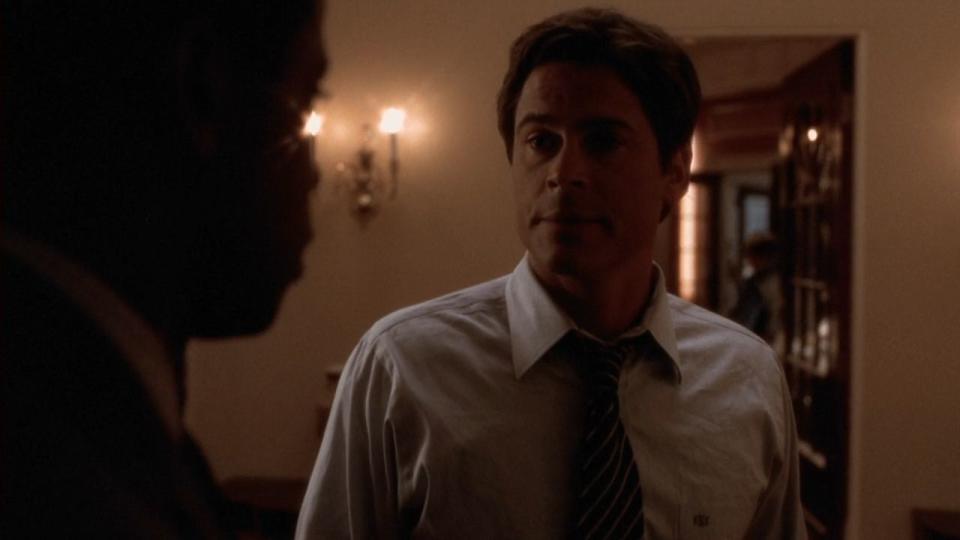
What Rob Lowe Has Said About Leaving The West Wing
Rob Lowe hasn’t said a great deal about his time on The West Wing and exactly why he chose to leave. He did confirm in his book Stories I Only Tell My Friends that producers on the show refused to give him a raise, and he implied that salary tension led to tension between Lowe and some of the other cast members.
In a recent appearance on the Podcrushed podcast, he said that he felt undervalued on the show, which was likely a reference to the salary issue. However, he also implied there was a great deal more going on behind the scenes of the show that led to his departure. Lowe said…
I felt very undervalued. Whenever I talk to actors who complain about their relationships on their shows, and sometimes it happens, it happens in any workplace, you can be in an environment where people sandbag you, want to see you fail, don’t appreciate you, whatever it is, and whenever I share my stories, people are like ‘I will never share my own stories again.’They would make your hair stand on end. I shared some of them in my book, but I purposely didn’t share half of the other ones because it would make the people involved look so bad that I didn’t want to do it to them. So I did not have a good experience.
He compared the experience to being in an abusive relationship and felt that he needed to walk away, if only as a way to set the proper example for his children. While it does appear that Lowe felt he was worth more than he was getting paid, this certainly makes it sound like the money wasn't the only reason he left The West Wing, though we can't begin to speculate on exactly what else was going on.
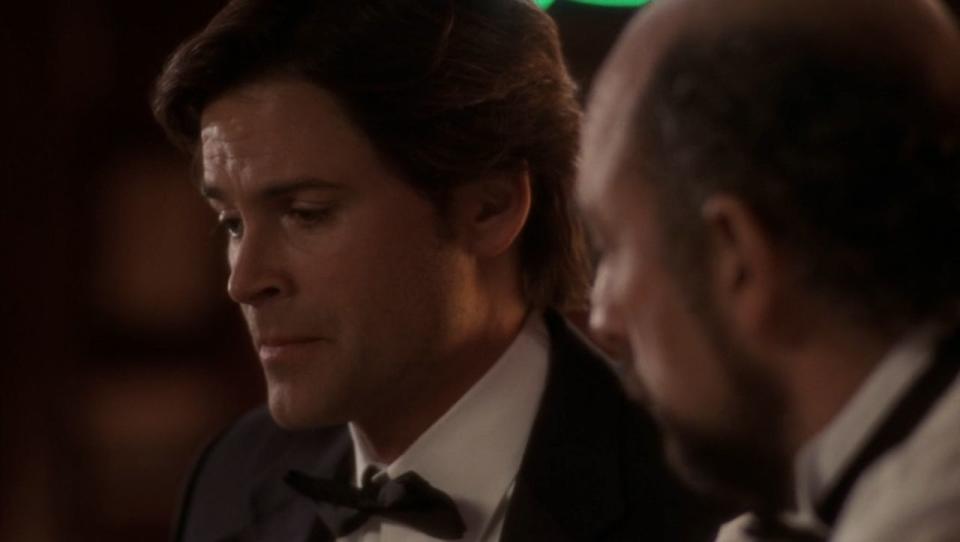
How Sam Seaborn Was Written Off The West Wing
The West Wing Season 4 included a story arc where a Democrat running for Congress in Orange County dies of a heart attack, but because the seat is seen as unwinnable, nobody steps up to take the dead man’s place. Having been inspired by the head of the campaign, Will Bailey (Josh Molina), Rob Lowe’s Sam Seaborn, a native of Orange County, agrees to become the new candidate when the dead man actually wins and a special election is required.
Sam campaigns for Congress while Will Bailey pinch hits for Sam by helping to write the President’s Second Inaugural address. Bailey then gets hired on to take over Sam’s old job and inherits his slot as a regular cast member. Interestingly, the show implies that Sam loses the election, though he’s not seen again on the show.
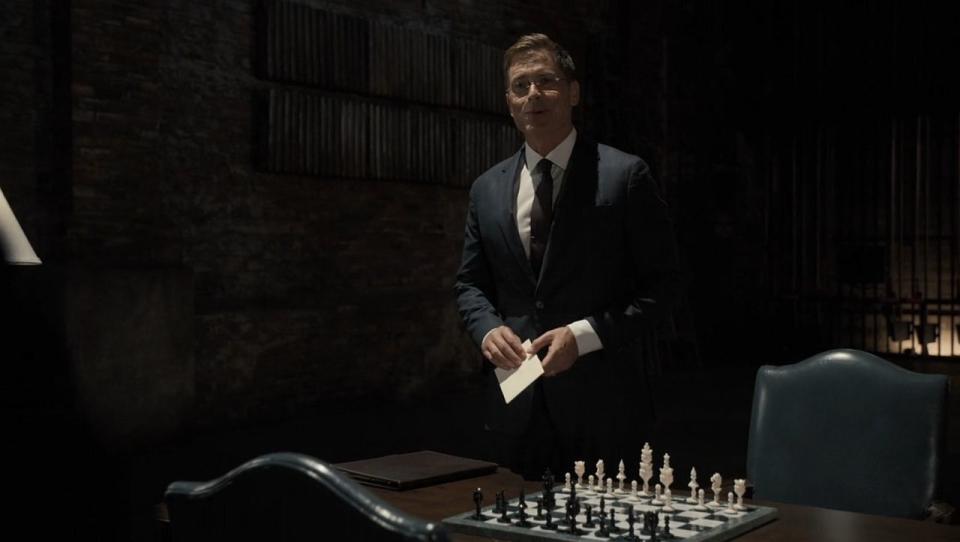
How Rob Lowe (And Sam Seaborn) Returned To The West Wing
However, the end of Season 3 wasn’t actually the end of Rob Lowe or his character on The West Wing. Lowe returned for a pair of guest appearances in the final episodes of the series' final season, which saw Sam become the new Deputy Chief of Staff for the new President.
But even that wasn’t quite the end for Lowe and The West Wing. In 2020, there was a special presented to benefit the When We All Vote organization, which saw the Season 3 episode “Hartsfield’s Landing” recreated on stage at the Orpheum Theater in Los Angeles. Every member of the original cast, including Rob Lowe, returned to reprise their roles. The only exception is Sterling K. Brown, whom Aaron Sorkin has suggested could lead a West Wing reboot, taking on the role of Chief of Staff Leo McGarry. Original actor John Spencer had passed away in 2005, during The West Wing’s original run.
Whatever the details, Rob Lowe clearly felt that he wasn't properly appreciated on The West Wing. The show continued on for three more seasons after his departure, so it clearly could survive without him, but it also never reached the same critical or popular heights that it had when he was there. We'll never know how the show might have been different if Sam Seaborn had never left, but his contribution to its success is undeniable.
